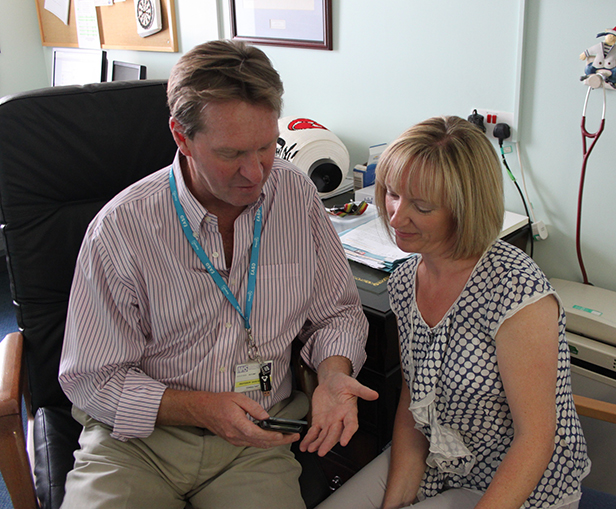Living with a health problem that cannot be cured but can be managed by medication or other therapies brings challenges, and it is important to have the confidence, support and information to take control of the condition.
Examples of long term conditions include diabetes, dementia, and arthritis, and health organisations across Dorset want to highlight the important role self-care plays in managing challenges associated with a lifelong health issue.
As well as taking medication properly and exercising moderately, people can access a range of support from NHS services including: equipment to make life easier at home, training to build confidence about living with a condition, access to support groups to share experiences.
Technology can be used to help those with diabetes carefully manage their condition. Telehealth and telecare services, which include blood glucose level monitors and personal alarms, are useful ways of doing this. Telehealth equipment to monitor health and telecare tools to raise the alarm that something is wrong at home can help reduce the number of visits to a GP and unplanned visits to the hospital.
The Royal Bournemouth Hospital’s consultant physician and diabetes expert, Professor David Kerr, runs one of the largest technology in diabetes programmes in the UK. He says: “We are very enthusiastic about the use of technology for improving the lives of people living with diabetes – insulin pumps, glucose sensors, social media, e-learning and much more.
The hospital’s Diabetes and Endocrine Centre runs one of the country’s major insulin pump centres, providing type 1 diabetes patients with portable insulin pumps which deliver constant amounts of insulin. On average, in the UK 6% of people with type 1 diabetes use this pump and in Bournemouth 17% of people with this type of diabetes are already using this particular technology.
Professor Kerr adds: “As well as NHS websites and social media channels to help educate and support self-management, we’ve recently introduced two free online resources of our own – one website which focuses on offering advice on diabetes and exercise (www.excarbs.com) and another which concentrates on travel and diabetes (www.voyagemd.com). We have also developed and launched a smartphone app for patients affected by painful neuropathy, called ‘appyfeet’, which can be downloaded for free from the iTunes store.”
The Bournemouth Diabetes and Endocrine Centre also offers web-based e-learning courses to provide tools to enable a person with diabetes to manage their condition and continues to be involved in clinical research and innovation.
Another example of how services are provided differently for some health conditions is Dorset HealthCare’s Early Supported Discharge scheme for patients who have suffered a mild to moderate stroke. The aim of Early Supported Discharge is to enable individuals to leave hospital as soon as they are medically stable, and to receive the same quantity and quality of stroke rehabilitation in their own homes that they would have received if they had stayed in hospital.
To have a say on care for long term conditions you can take part in The big ask survey, launched recently by the NHS organisations in Dorset.
These Dorset health organisations have come together to ask for some thought provoking answers to questions on a whole range of NHS services, out of hours’ services, community services, including local GPs, mental health services and hospital care.
The big ask survey closes on Monday 9 September.
The survey can be completed online at www.bournemouth.ac.uk/thebigask and paper copies can be requested from Ehren Milner at the Market Research Group on 01202 961379 or emilner@bournemouth.ac.uk







